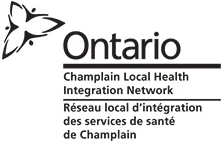
Introduction
There are few professions that are more interesting and rewarding than the field of mental health. There is no one single type of "mental health professional", but rather many different types of professionals who all help people in slightly different ways.
There are different types of mental health professionals...
Mental health jobs and careers include, but are not limited to the following...
Aboriginal mental health professionals
- Elders, healers, cultural counselors work in many Aboriginal mental health services, and use an aboriginal perspective to help aboriginals with their mental health needs.
-
For more information
- In Canada, contact the Native Mental Health Association of Canada (http://www.nmhac.ca)
Addictions Counsellor
- Addictions Counsellors have training in addictions (problems with alcohol, and substance use) and help people overcome their addictions
-
For more information
- In Canada, contact the Canadian Addiction Counesllors Certification Federation (http://www.caccf.ca)
Counselors
- Counselors meet with people and provide counseling or talk therapy, in order to help them with their difficulties.
- In Canada, the term generally describes Certified Clinical Counselors, which is someone who has been trained at a recognized program and is a member of the Canadian Association of Counesllors and Psychotherapists.
-
For more information
- In Canada, contact the Canadian Counselling and Psychotherapy Association (CCPA-ACCP) (http://www.ccpa-accp.ca)
Nurses
- Psychiatric nurses (a nurse with special training in mental health) provide mental health services, which may include meeting with patients and helping them cope with their day-to-day issues, such as helping with medications or accessing other services.
-
For more information:
- In Canada, contact the Canadian Nursing Association (http://www.cna-nurses.ca)
Occupational Therapists (OT)
- Occupational therapists help people with their day-to-day activities, which are all the activities that a person does in order to get through their day, including bathing, dressing, shopping, work and leisure.
-
For more information
- In Canada, contact the Canadian Association of Occupational Therapists (CAOT) (http://www.caot.ca)
- In the USA, contact the American Occupational Therapy Association (http://www.aota.org)
Peer Support Workers (aka. peer counselors)
- Peer support workers work together with a team of other professionals to help clients address their mental health needs and recovery goals
- Peer support workers are individuals with lived experience", and have gone through their own process of recovery and healing with a mental health challenge
- Peer support workers are an unregulated profession, meaning there is no official standards or licensing body or training program, but nonetheless, organizations will usually provide their own training for their peer support workers
Psychiatrists
- Psychiatrists are medical doctors who have done additional training in mental health, and are qualified to diagnose mental health conditions and illnesses, as well as provide mental health treatment
- Being psychiatrists are physicians, they can prescribe medications
-
For more information
- In Canada, contact the Canadian Psychiatric Association (http://www.cpa-apc.org)
- In the USA, contact the American Psychiatric Association (http://www.psych.org)
Psychologists
- Psychologists help people with problems with thoughts, feelings and behaviours. They are able to do psychological testing (specialized tests to look at psychological symptoms and issues such as mood, anxiety and personality), as well as psychoeducational testing (specialized test that looks at a person's learning and cognitive abilities). They are able to diagnose mental health conditions, and can provide mental health treatment such as counselling and psychotherapy.
- Psychologists and psychiatrists are often confused for one another, but they are different professionals. For example, psychologists have specialized training in giving psychological testing, whereas psychiatrists do not. And psychiatrists are able to prescribe medications, whereas psychologists are not.
-
For more information
- In Canact, contact the Canadian Psychological Association (http://www.cpa.ca)
- In the USA, contact the American Psychological Association (http://www.apa.org)
Social workers
- Social workers help people with issues in their day-to-day lives, such as family, personal and relationship problems, including abuse and domestic violence. They also help people connect to community resources such as employment, disability and other services.
-
For more information
- In Canada, contact the Canadian Association of Social Workers (http://www.casw-acts.ca)
- In the USA, contact the National Association of Social Workers (http://www.naswdc.org)
Mental health professionals work in different places
Mental health professionals may work in different settings, which may include:
- Private practice: The professional has an office where they provide their services. There are individual practices, where it is one professional working on his/her own, as well as group practices, where the professionals shares a location (and possibly rent and other expenses) with other professionals.
- Hospitals: Hospitals that provide mental health services may employ professionals such as social workers, psychologists, psychiatric nurses. (Psychiatrists also work at hospitals, though they are not officially employed by the hospital.)
- Community mental health agencies: Community mental health agencies are organizations that help people with mental health needs.
- School boards: Often employ mental health professionals such as social workers, psychologists.
- Other settings: Many other organizations may hire mental health professionals as well. For example, companies may hire psychologists.
In summary, there are many ways to be involved in the exciting and growing field of mental health, and there is no other field that can offer the same satisfaction, knowing that you have made a direct difference in other’s lives.
About this Document
Written by the eMentalHealth Team and Partners.
Disclaimer
Information in this pamphlet is offered ‘as is' and is meant only to provide general information that supplements, but does not replace the information from your health provider. Always contact a qualified health professional for further information in your specific situation or circumstance.
Creative Commons License
You are free to copy and distribute this material in its entirety as long as 1) this material is not used in any way that suggests we endorse you or your use of the material, 2) this material is not used for commercial purposes (non-commercial), 3) this material is not altered in any way (no derivative works). View full license at http://creativecommons.org/licenses/by-nc-nd/2.5/ca/







